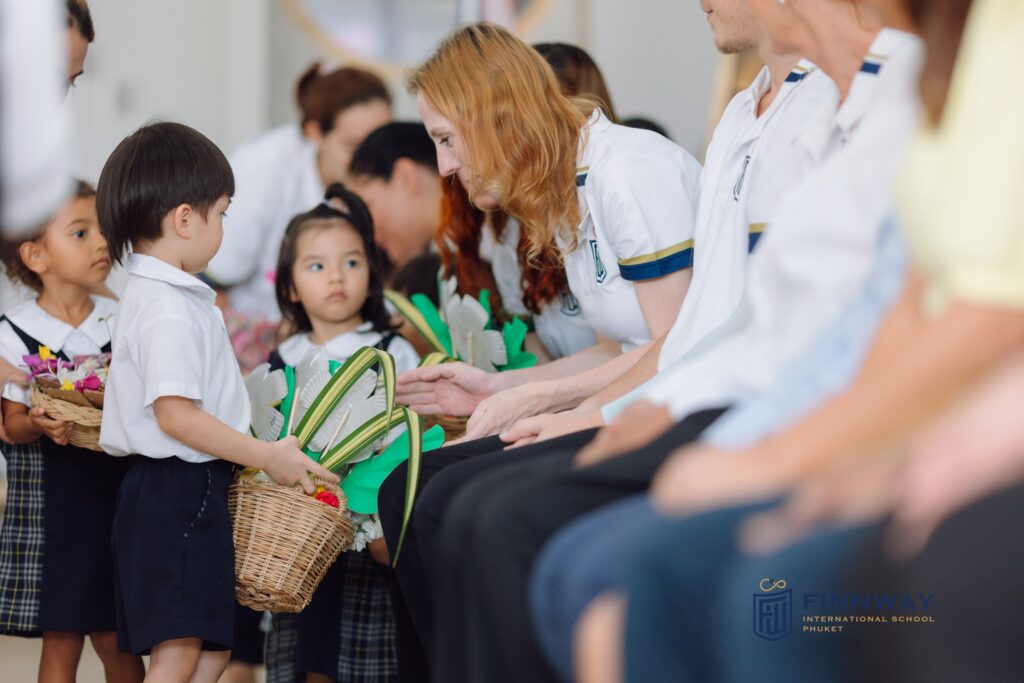Wai Kru Day in Thailand
Honoring Traditions and Cultivating Respect
Nestled within the heart of Thailand’s vibrant cultural tapestry is the enchanting tradition of Wai Kru Day. Celebrated with reverence and enthusiasm, this annual event is a vivid reflection of Thai values, where respect, gratitude, and spiritual connection intersect. With deep-rooted origins and an enduring significance, Wai Kru Day encapsulates the essence of Thai culture and the importance of honoring one’s teachers.
The Essence of Wai Kru Day
Wai Kru Day, also known as Teacher’s Day, is celebrated on the first Thursday of June every year in Thailand. The term “Wai Kru” can be broken down into two components: “Wai,” which refers to the traditional Thai gesture of pressing the palms together and bowing the head as a sign of respect, and “Kru,” which means “teacher.” This day is dedicated to honoring teachers, mentors, and spiritual guides who have imparted wisdom, guidance, and knowledge to their students.
Origin and Evolution of Wai Kru Day
The origins of Wai Kru Day can be traced back to the Ayutthaya period (1351-1767) in Thailand, when it was observed as a day to pay homage to the royal teachers who imparted martial arts and combat skills to warriors. Over time, the tradition expanded to encompass various fields of learning, from literature and art to music and dance. Today, Wai Kru Day is celebrated across schools, universities, and various institutions as a mark of gratitude towards all teachers.
Significance and Cultural Importance
Wai Kru Day holds immense cultural and societal significance in Thailand. It reinforces the values of gratitude, humility, and the importance of education. Thai culture places a strong emphasis on respect for elders and figures of authority, and Wai Kru Day serves as a reminder of these core values. It also fosters a sense of unity and camaraderie among students, as they collectively participate in paying tribute to their educators.
The Ceremony
The Wai Kru ceremony typically takes place in schools, where students gather to express their gratitude towards their teachers. The ceremony begins with a traditional dance performance, often accompanied by music played on Thai instruments. Students wear traditional Thai clothing and carry flowers as offerings. The highlight of the ceremony is when each student approaches their teacher, performs the Wai gesture, and presents them with flowers as a token of appreciation. Teachers, in turn, offer blessings and words of encouragement to their students.
Why Wai Kru Day Is Important
Preservation of Culture: Wai Kru Day is a testament to the enduring importance of preserving cultural traditions. As modernization and globalization continue to reshape societies, events like Wai Kru Day serve as a bridge between the past and the present, ensuring that valuable cultural practices are not lost to time.
Respect and Gratitude: In a world often characterized by fast-paced living and changing social dynamics, Wai Kru Day reinforces the values of respect and gratitude. It encourages individuals to pause, reflect, and show appreciation to those who have contributed to their personal and intellectual growth.
Strengthening Teacher-Student Bonds: The ceremony strengthens the bond between teachers and students. It’s a rare occasion when students can openly express their appreciation for the guidance they receive, fostering a sense of mutual respect and understanding.
Character Building: Wai Kru Day plays a role in character development. Through the act of bowing and offering flowers, students learn the importance of humility and acknowledging the role others play in their lives.
Wai Kru Day stands as a testament to the rich cultural heritage of Thailand, where tradition and values intersect in a harmonious celebration of respect and gratitude. As this cherished day continues to be observed across generations, it serves as a reminder that honoring those who impart knowledge is not just a tradition but an essential aspect of cultivating a society that values wisdom, unity, and harmony.

